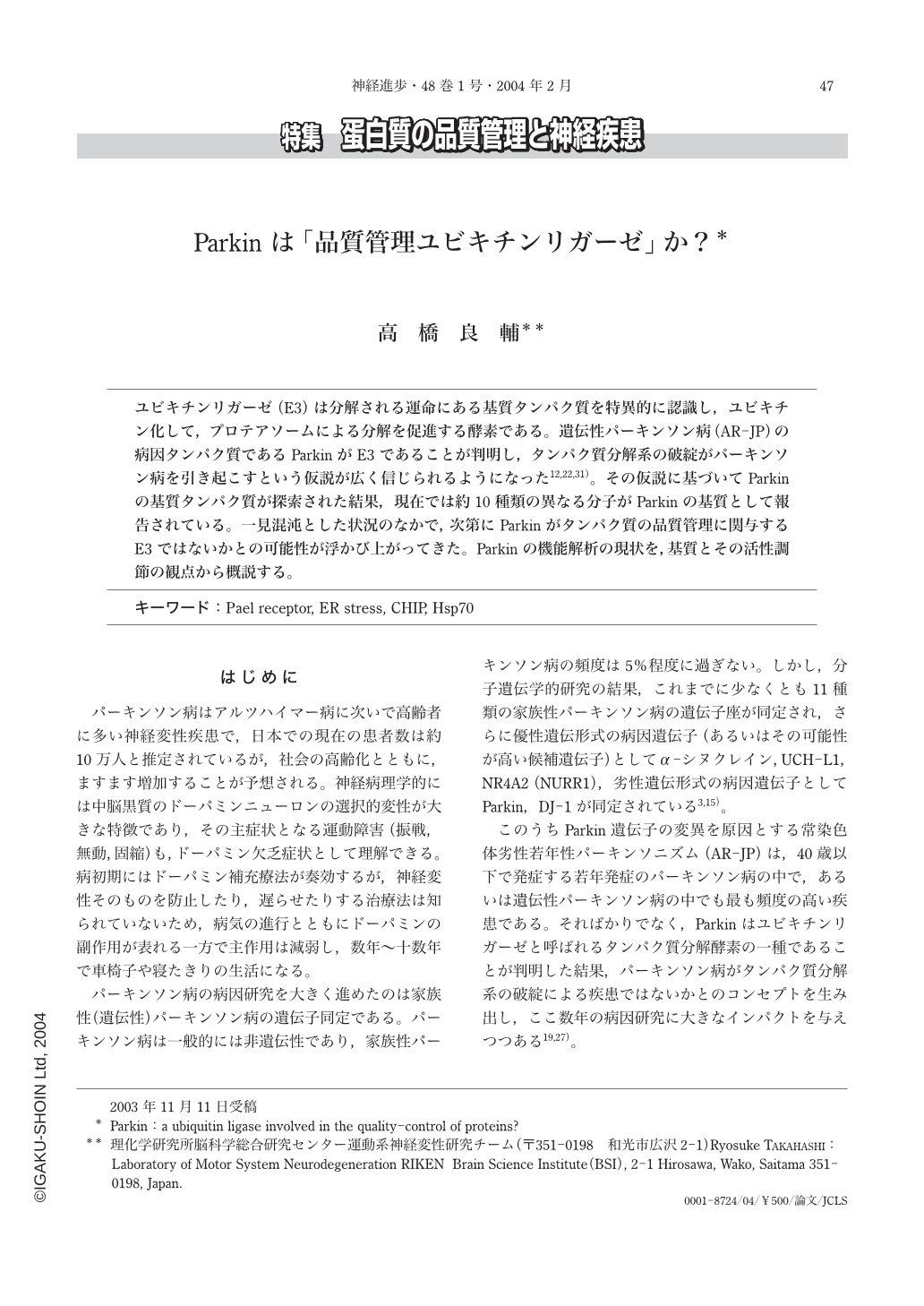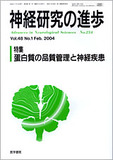Japanese
English
- 有料閲覧
- Abstract 文献概要
- 1ページ目 Look Inside
ユビキチンリガーゼ(E3)は分解される運命にある基質タンパク質を特異的に認識し,ユビキチン化して,プロテアソームによる分解を促進する酵素である。遺伝性パーキンソン病(AR-JP)の病因タンパク質であるParkinがE3であることが判明し,タンパク質分解系の破綻がパーキンソン病を引き起こすという仮説が広く信じられるようになった12, 22, 31)。その仮説に基づいてParkinの基質タンパク質が探索された結果,現在では約10種類の異なる分子がParkinの基質として報告されている。一見混沌とした状況のなかで,次第にParkinがタンパク質の品質管理に関与するE3ではないかとの可能性が浮かび上がってきた。Parkinの機能解析の現状を,基質とその活性調節の観点から概説する。
Mutations of the Parkin gene are responsible for autosomal recessive juvenile parkinsonism(AR-JP), the most common cause of early-onset familial Parkinson's disease. Parkin functions as an E3 ubiquitin ligase, thereby promoting ubiquitination and subsequent proteosomal degradation of its substrate(s). AR-JP is, therefore, thought to be caused by accumulation of an unknown toxic protein(s), which would normally be degraded by a molecular machinery involving Parkin.
To date, ten different proteins are reported to be substrates of Parkin. Interestingly, some of them have the properties of misfolded proteins, raising the idea that Parkin promotes the degradation of a subset of misfolded proteins, thereby serving as an essential component of the cellular quality control system of proteins.
In a previous report, we identified one such protein, a G protein-coupled receptor called the Pael receptor(Pael-R),and investigated its relationship to Parkin. When over-expressed in cells, the Pael-R protein became improperly folded and insoluble. Excessive accumulation of insoluble Pael-R led to endoplasmic reticulum(ER)stress-induced cell death. Parkin was observed to ubiquitinate the misfolded Pael-R protein, thereby promoting its degradation and suppressing misfolded Pael-R-induced cell death. Moreover, increased levels of insoluble Pael-R were observed in the brains of patients with AR-JP. High expression levels were also noted in dopaminergic neurons of the substantia nigra, supporting the idea that an accumulation of misfolded Pael-R protein might lead to selective death of dopaminergic neurons.
Moreover, we identified Hsp70, and its co-chaperone CHIP, as novel Parkin-binding partners. We found that CHIP enhanced Parkin-mediated ubiquitination of the Pael-R protein. In concert with Hsp70, CHIP also enhanced the ability of Parkin to inhibit cell death induced by overexpression of misfolded Pael-R, indicating that CHIP and Hsp70 are both co-factors of Parkin.
Finally, recently created Parkin deficient animals are discussed with special reference to their implications for the physiological function of Parkin.
(Received:November 11, 2003)

Copyright © 2004, Igaku-Shoin Ltd. All rights reserved.


